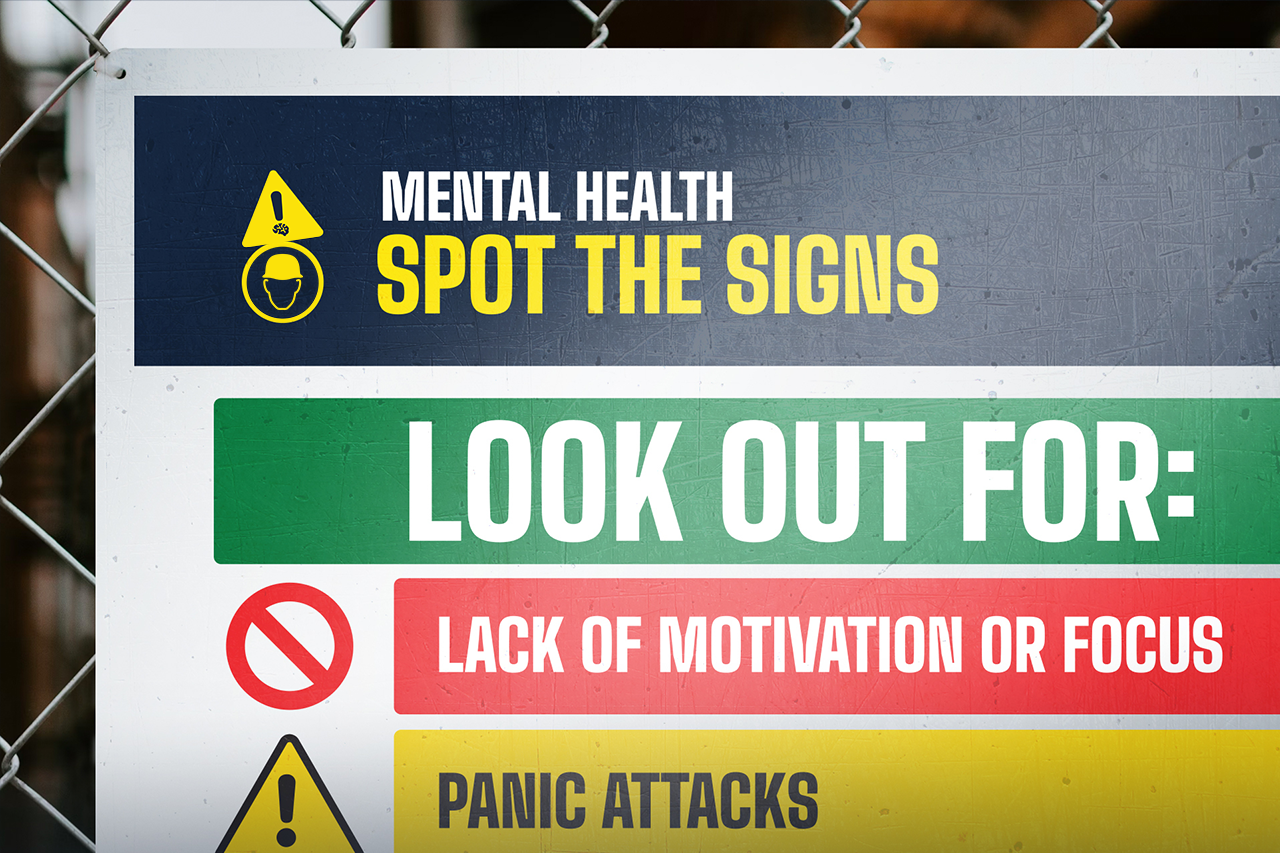As our ‘Spot the Signs’ campaign videos come to an end (for now), the message behind the campaign will continue with the hopes of educating as many people as we can. We are aiming to raise awareness about prevalent symptoms to watch for in both yourself and your colleagues who might be facing mental health challenges.
Due to space limitations on our campaign signs, we have compiled this blog to provide a resource on what to look out for, enabling you to identify early signs in others before they escalate.
Physical signs
It is very common for mental ill-health to affect your body. Some of the most common physical signs of mental health struggles include:
- Panic attacks – These can appear in many ways. Things to look out for are uncontrollable shaking, excessive sweating and difficulty breathing.
- Change in diet – Individuals experiencing distress may exhibit changes in their eating habits, either by ceasing to eat or resorting to overeating as a means of coping with their emotions. Choice of foods can impact both mood swings and physical well-being. Therefore, look out for abrupt and unexplained alterations in their dietary patterns.
- A lack of personal hygiene – The individual may struggle to attend to their personal hygiene requirements, such as neglecting tasks like laundry, toothbrushing, or hair care. These are commonly recognized as indicative signs of depression.
- Problems with sleeping – Insomnia can be a telltale sign of anxiety, disrupting one’s daily thoughts and emotions. Things to look out for are heavy eyes and dull skin which could be a sign of lack of sleep. Excessive sleep can serve as an indicator of depression as well, making it crucial to remain attentive to sleep patterns.
Emotional signs
Another way to spot potential signs of mental ill-health is by looking for changes in emotional behaviour. Some of these are as follows:
- Anxious or worried – Feeling anxious can lead to anxiety, which can develop into panic attacks as addressed above. Look out for feelings of constant worry and fretting, these could be early signs of anxiety.
- Unhappiness – Unhappiness is a sign of depression and could manifest into a lack of motivation or energy as well as becoming withdrawn and unsociable. Behavioural changes such as these are things to look out for, if you notice someone becoming distant this could be a sign of struggle.
- Outbursts of anger – Sudden fits of anger can be a source of significant distress for the individual, often appearing uncharacteristic for the triggering circumstances. Be attentive to signs of short temper or irritability as potential indicators of emotional distress.
- Feelings of hopelessness – Persistent self-blame is another telling sign of depression, and when left unaddressed, these feelings can progress to thoughts of self-harm. If you or someone you know exhibits any of these symptoms, it’s imperative to seek help promptly. (Refer to the helpline resources provided at the end of this blog for assistance.)
What to do if you spot these signs
Detecting these signs promptly allows for more effective assistance to be provided. Since individuals vary, these indicators may manifest in some but not others. It is crucial to bear in mind that at times, people may experience symptoms not explicitly mentioned here.
If you observe a colleague exhibiting unusual behaviour, it may be time to consider taking action. You can start by inquiring if they are okay or expressing your concern for their well-being. This simple gesture can pave the way for a more meaningful conversation. Keep in mind that they might not immediately open up if they’re not feeling their best, so don’t be discouraged if they initially decline to share.
Break down the walls
Research, reported by Planning, Building & Construction Today prompted employees to reflect on the long-term implications of their mental well-being within their professional careers. 21% of the participants responded saying that discussing their mental health was not “the done thing in the industry”. Many construction workers have this mindset and because of this unfortunately the construction industry is one of the industries most affected by mental ill-health. It is time to break down these walls, start talking and spot the signs of mental health to help bring about meaningful change.
Helplines:
Norfolk and Waveney Mind
Call 0300 330 5488
Visit www.norfolkandwaveneymind.org.uk
Lighthouse Construction Industry Charity
UK call 0345 605 1956
ROI call 1800 939 122
Text HARDHAT to UK 85258 or ROI 50808
